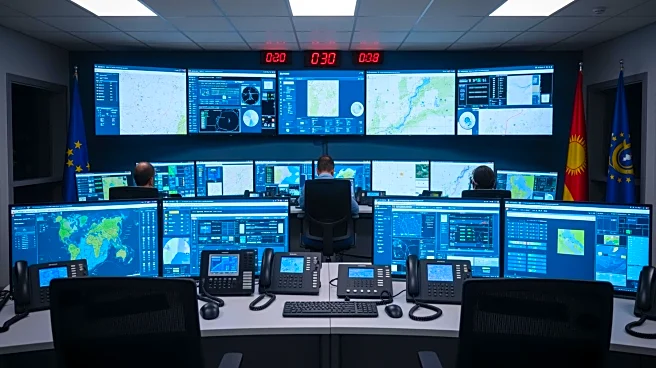What's Happening?
The U.S. command center in Kiryat Gat has assumed responsibility for coordinating humanitarian aid deliveries to Gaza, a role previously managed by Israel's COGAT unit. This shift, reported by The Washington
Post, places the U.S. in a decisive position, with Israel now playing a secondary role in determining the aid allowed into Gaza. The command center, which includes representatives from about 40 countries and international organizations, aims to streamline aid delivery amidst ongoing challenges. However, aid agencies have expressed concerns that this new model may repeat past failures, such as those associated with the Gaza Humanitarian Fund, which they claim indirectly contributed to civilian casualties during Israeli Defense Forces operations.
Why It's Important?
This development is significant as it alters the dynamics of humanitarian aid delivery to Gaza, potentially impacting the region's stability and the humanitarian situation. The U.S. taking a leading role could lead to more efficient aid distribution, but it also raises questions about the effectiveness and impartiality of the process. Aid agencies fear that without addressing underlying issues, the new model might not prevent the recurrence of past problems. The change also reflects broader geopolitical shifts, with the U.S. asserting more control over Middle Eastern affairs, which could influence future diplomatic and military engagements in the region.
What's Next?
The U.S. is reportedly pressing the UN Security Council to adopt a resolution that would formalize President Trump's Gaza cease-fire deal in international law. This move could solidify the U.S.'s role in the region and potentially lead to further diplomatic negotiations. However, the effectiveness of the command center's operations remains uncertain, with reports of bureaucratic delays and confusion. The international community will likely monitor the situation closely, as the success or failure of this initiative could have significant implications for regional peace and humanitarian efforts.









